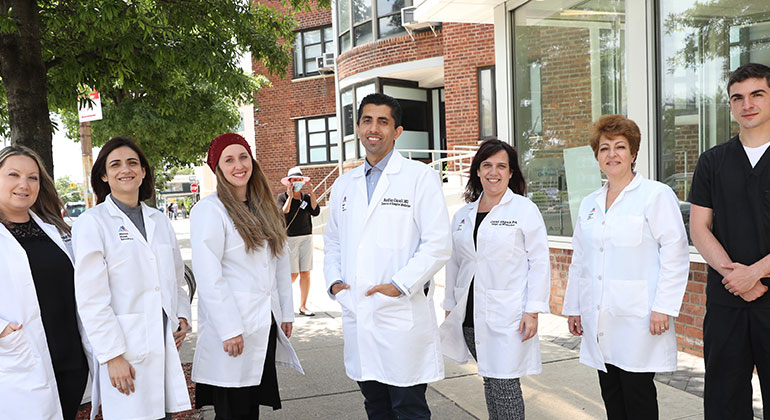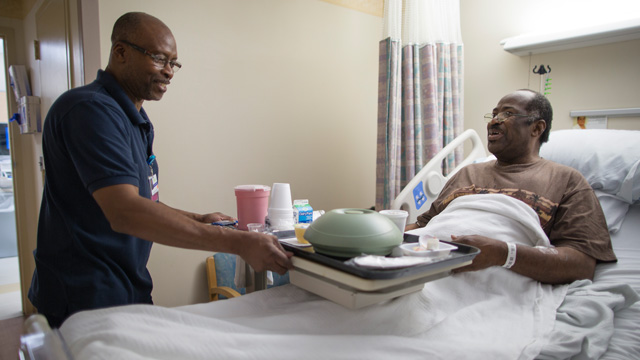

Mount Sinai Brooklyn Hospitalist Program
If you are admitted to Mount Sinai Brooklyn through the Emergency Department, you will probably be assigned a hospitalist. A hospitalist is a doctor who specializes in caring for you while you are in the hospital. Our team of hospitalists are here for you, from admission to discharge. We coordinate your care among social workers, therapists, nutritionists, and other specialty physicians. Mount Sinai Brooklyn hospitalists are part of the Division of Hospital Medicine available across the Mount Sinai Health System.
The mission of the hospitalist program is to deliver outstanding patient care through teamwork, communication, and comprehensive care. Our hospitalists are local and national leaders in medical education and in the development of innovative programs that enhance quality and safety. This commitment to excellence allows our hospitalists to give patients the best care possible.
Personalized Care
Hospitalists serve as a single point of contact for you, from the day you enter the hospital to the day you leave. They provide personal attention for you and your family. They also coordinate with the rest of your health care team at the hospital, perform daily bedside rounds, order treatments and medical services, and arrange for follow-up care.
When you are ready to leave the hospital, your hospitalist will coordinate all discharge planning with you and your family. Before you leave, your hospitalist will provide a full report of your medical status. This will include any tests and treatments you received. They will outline any follow-up care you need and will share this report with you and with your primary care doctor.
Advantages of a Hospitalist Program
Our hospitalists are available whenever you need them while you are in the hospital. They work on seven-day shifts, which helps them build a personal relationship with you and your family. In addition, studies show that hospitalists help patients by:
- Shortening hospital stays
- Allowing for faster evaluation of test results (and resulting adjustments in care)
- Improving communication between hospital and family members
- Improving communication among hospital doctors
- Reducing costs for patient and hospital
- Decreasing hospital readmissions
- Lowering mortality
- Standardizing care for all patients
- Improving outcomes
- Increasing patient satisfaction